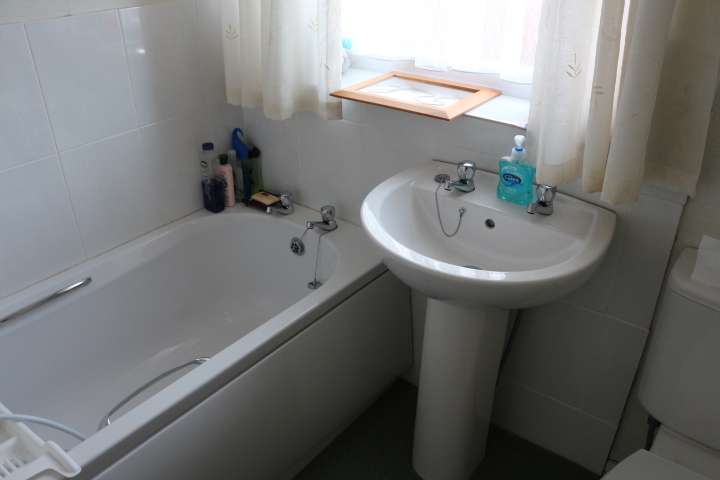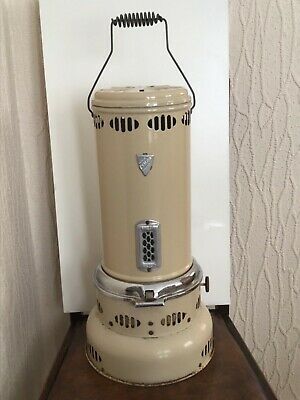
Old Virtues
My wife and I prefer a cold bedroom at night for sleeping; since that’s how it was for both of us growing up and it’s what we got used to. Even in the coldest weather we tend to leave the widows open at least a crack, for ventilation and a cool room. We don’t use the lemonade bottles of our childhood, filled with hot water and covered with a towel. Central heating means we don’t need to sprint from the living room up the icy stairs to an even icier bathroom, then a dash along the landing, undressing in ten seconds and diving under the blankets to hug the hot water bottle for a few moments before pushing it down to our feet. No—those skills, so much part of our life in wintertime, when only one room in the house was kept warm, are no longer needed. But we still sleep better in a cold bedroom.
This generates a problem in the morning. Our shower room is en-suite and we leave the door open since the cross flow of air from the shower room window to the bedroom window is important for for our night-time temperature comfort. But this means the shower room is just as cold as the bedroom first thing before the radiator kicks in. If we set the central heating to start sooner, we’re uncomfortable and wake up sooner—Catch 22. So I just put up with the cold. But this morning, with Beast From the East Two howling in the partially open window before I slammed it shut, I was reminded of How Life Used To Be. I remembered the even icier bathroom those years ago. We had a paraffin heater to take the chill off a bit, otherwise morning ablutions would have been more symbolic than real. But just like now, first in just had to put up with the cold. I remember that old yellow enamelled paraffin heater. I wonder how healthy it was in that tiny five foot by five foot space. Still, none of us died from carbon monoxide and it prevented frostbite.

First thing this Sunday morning, as usual I went out to feel the day and test the air but instead of strolling up the footpath as usual, I came back in again sharpish. I lit our wood-burner stove for a bit of extra warmth and was reminded of my childhood once more. In our council house the living room coal fire was our main source of heat. If I was first down on a winter morning, I would rake it out, remove the ash and get coal from the outside bunker. We had a gas poker, which made lighting easy but it broke and I had to use screws of newspaper and kindling, shivering all the while. In exceptionally cold periods we would “bank up” the fire at night, closing off the damper, so it was still alive next morning and didn’t need to be relit (and the living room was deliciously warm). Younger readers won’t know what on earth I’m talking about, or the joy of toasting bread on an open fire (it tastes better). Happy memories.
We live in a turbulent, uncertain age of the world today. One of the most famous opening lines of a novel tells us: “The past is a foreign country, they do things differently there” (L. P. Hartley, The Go-Between). At my age many of us look to the past with nostalgic longing and feel that despite physical inconveniences, life was better then—simpler and more stable. But we remember through the eyes of a child; when I read news reports from the 1950s I realise it was also a troubled time. Nevertheless, there were features of life then that should not be lost now.
At the last General Conference of The Church of Jesus Christ of Latter-day Saints, Elder Christopherson’s talk was “Sustainable Societies”. He quoted Gerald Baker, a journalist who wrote a piece celebrating his father’s 100th birthday.
“While we may all want to know the secret to a long life, I often feel we’d be better off devoting more time to figuring out what makes a good life, whatever span we’re allotted. Here, I’m confident I know my father’s secret.
“He is from an era when life was defined primarily by duty, not by entitlement; by social responsibilities, not personal privileges. The primary animating principle throughout his century has been a sense of obligation—to family, God, country.
“In an era dominated by the detritus of broken families, my father was a devoted husband to his wife of 46 years, a dutiful father to six children. He was never more present and vital than when my parents suffered the unthinkable tragedy of losing a child. …
“And in an era when religion is increasingly a curiosity, my father has lived as a true, faithful Catholic, with an unshakable belief in the promises of Christ. Indeed, I sometimes think he has lived so long because he is better prepared than anyone I have ever met to die.
“I have been a fortunate man—blessed by a good education, my own wonderful family, some worldly success I didn’t deserve. But however proud and grateful I feel, it’s eclipsed by the pride and gratitude I have for the man who, without fuss or drama, without expectation of reward or even acknowledgment, has got on—for a century now—with the simple duties, obligations and, ultimately, joys of living a virtuous life.” (Gerard Baker, “A Man for All Seasons at 100,” Wall Street Journal, Feb. 21, 2020, wsj.com)
His comments express precisely my thoughts about my parents, the standards they lived by and taught me, and how important they still are. In the confusing cross-talk of social media, the shrill voice of news broadcasters, appallingly amoral entertainment and even school curricula, it may seem that these old-fashioned standard are irretrievably lost. But take courage from the Old Testament prophet Elijah. After he performed a stunningly impressive demonstration of God’s power in a contest with the priests of Baal, he maybe thought that wicked King Ahab and Queen Jezebel would finally listen to him. Instead, he had to flee for his life and hide in the wilderness. In 1 Kings 19, we read that the Lord speaks to him On Mount Horeb:
“What doest thou here Elijah?”
Elijah explains that that the children of Israel have forsaken the covenant, destroyed the alters, and slain all the prophets, then he says, feeling very sorry for himself,
“and I, even I only, am left; and they seek my life to take it away”.
The Lord ignores this and proceeds to give him seemingly impossible tasks, including to anoint a new king for Israel. Then, almost as an afterthought, the Lord says this:
“Yet I have left me seven thousand in Israel, all the knees which have not bowed unto Baal, and every mouth which hath not kissed him.”
Elijah was not alone. And neither we. I am convinced there is a huge silent body of ordinary, decent human beings who accept traditional standards of morality, virtue, responsibility and duty. Occasionally their views surface when frustration with the chattering classes overspills; then legislators and commentators have to rethink. I suspect that anyone who has bothered to read this far is part of this group; if so, please don’t remain silent.